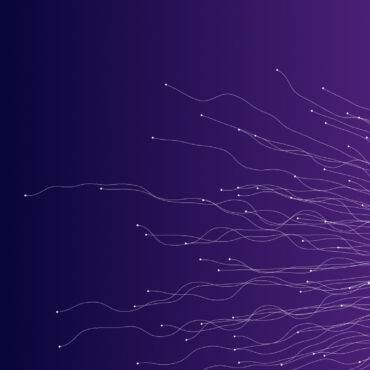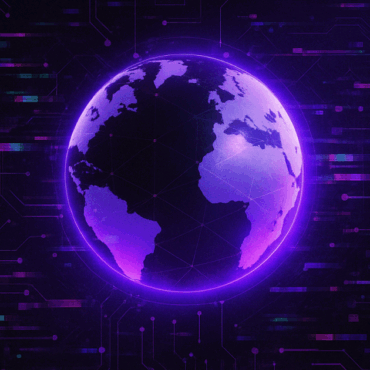Last week was smashed by various news and posts about ChatGPT and its Jailbreaks and Malicious use including ours. In order to give some visibility to another important news, we collected all ChatGPT articles in separate Digest which will be published tomorrow. As for now, please take a look here.
Artificial Intelligence Act: Council calls for promoting safe AI that respects fundamental rights
European Council, December 6, 2022
The European Commission has drafted a regulation that establishes a uniform, horizontal legal framework for AI based on a risk-based approach. This draft regulation, which was published in April 2021, is an important part of the EU’s policy to encourage the development and widespread adoption of safe and lawful AI that respects fundamental rights.
The EU AI Act proposes a three-level structure for fines against infringements of its regulations. The heaviest fines, up to 30 million Euros or 6% of a company’s turnover, are reserved for violations of the prohibition of specific AI systems. Infringements related to high-risk systems and all actors within their life cycle, including users, importers, distributors, and notified bodies, are subject to high sanctions. Small and medium-sized businesses and start-ups, on the other hand, will face lower fines. The penalty regime reflects the importance placed on regulating high-risk AI systems.
The proposal discusses the definition and classification of AI systems, as well as prohibited practices and requirements for their use. It also addresses the role of different actors in the development and distribution of AI systems, and clarifies the scope and provisions relating to law enforcement authorities. The proposal also outlines the compliance framework and the role of the AI Board in ensuring compliance with the requirements of the AI Act. Finally, it discusses the sanctions and remedies for non-compliance, and the role of national supervisory authorities in enforcing the AI Act.
Read the full press release at the link
The state of AI in 2022—and a half decade in review
McKinsey, December 6, 2022
Cyber Security is a top AI risk according to Responders
The use of artificial intelligence (AI) has more than doubled since 2017, according to the results of this year’s McKinsey Global Survey on AI. Between 50 and 60 percent of organizations are now using AI, with a select group of companies seeing the highest financial returns from the technology. These companies are making larger investments in AI, engaging in advanced practices for scale and faster AI development, and are reportedly faring better in the tight market for AI talent.
Despite the increased use of AI, there has been little increase in reported risk mitigation, particularly in the area of cybersecurity. This was cited as the top AI risk by respondents to the survey, leading to concerns over digital trust.
There is also significant room to improve diversity on AI teams, as diverse teams have been shown to correlate with outstanding performance. In terms of specific areas where companies see value from AI, marketing and sales, product and service development, and strategy and corporate finance showed the biggest reported revenue effects. Supply chain management was cited as having the highest cost benefits from AI.
To ensure the continued success of AI and mitigate potential risks, it is crucial for companies to prioritize cybersecurity and diversity in their AI initiatives.
Read the full article at the link.
Israel Police unveils AI-based traffic violation detection system
Globes, December 8, 2022
The new AI-powered traffic enforcement system being developed by the Israel Police will use sensors along roads to stream information to a central processing computer. The system will be tested in 2023 on Road 90, as part of a project to upgrade the highway. The digital traffic tickets issued by the system will include video documentation of the offense, as well as a link to the video clip. The system is expected to improve the accuracy and fairness of traffic enforcement, and to reduce the number of accidents on the roads. The police will conduct testing to ensure the reliability of the system before it is introduced in traffic courts.
The system will use advanced AI software to analyze videos and produce tickets for offenses such as speeding and running red lights. The tickets will be issued within minutes of the offense being committed. The aim is to make the process of issuing tickets more automated and efficient, allowing police officers to focus on other tasks. The sensors used in the system will be manufactured by international companies. The “smart road” infrastructure being set up along Road 90 will include a network of wireless control cameras that can identify vehicle license numbers and measure the average speed of passing vehicles.
The use of AI for automatic video analysis is currently accepted mainly in surveillance systems in the field of internal security. This type of system has been shown to dramatically increase the number of tickets issued in other countries. In Las Vegas, for example, there was an 18% decrease in accidents and a 43% decrease in journeys over the permitted speed in the first year of operation. The introduction of the new system in Israel is expected to have similar effects, improving safety on the roads and helping to enforce traffic regulations.
Read more about AI-powered traffic enforcement system at the link.
How Chinese students came up with an ‘invisibility cloak’ that evades security cameras
South China Morning Post, December 5, 2022
One more time, Invisible Coat is now a reality, now even at night.
A team of Chinese graduate students have developed a low-cost coat that can hide the wearer from security cameras monitored by AI. The InvisDefense coat uses a pattern that blinds cameras during the day and sends out unusual heat signals at night, making it difficult for surveillance cameras to detect the wearer as a human. The team responsible for the InvisDefense coat won first prize in a creative work contest sponsored by Huawei Technologies.
The project was overseen by Professor Wang Zheng of the school of computer science at Wuhan University, and the developers’ paper on the invention has been accepted by AAAI 2023, a top academic conference on artificial intelligence. During the day, cameras often detect human bodies through motion and contour recognition. The InvisDefense coat interferes with these recognition algorithms, effectively blinding the camera and preventing it from identifying the wearer as a person.
At night, the camera tracks human bodies through infrared thermal imaging. The InvisDefense coat has temperature-controlling modules on its inner surface that create an unusual temperature pattern, which confuses the infrared camera. One of the key advantages of the coat is its low cost. The camouflage pattern can be printed on the surface relatively inexpensively, and only a few temperature control modules are needed to blind the infrared camera. The cost of a complete set of this coat is less than $70, according to Professor Wang.
The InvisDefense coat has potential applications in a variety of settings, including anti-drone combat and human-machine confrontation on the battlefield. In addition, it could be used to avoid detection by surveillance cameras in public places. Overall, the coat represents a significant advancement in the field of artificial intelligence and computer recognition technology.
Read the full article about this coat at the link
Subscribe for updates
Stay up to date with what is happening! Get a first look at news, noteworthy research and worst attacks on AI delivered right in your inbox.




